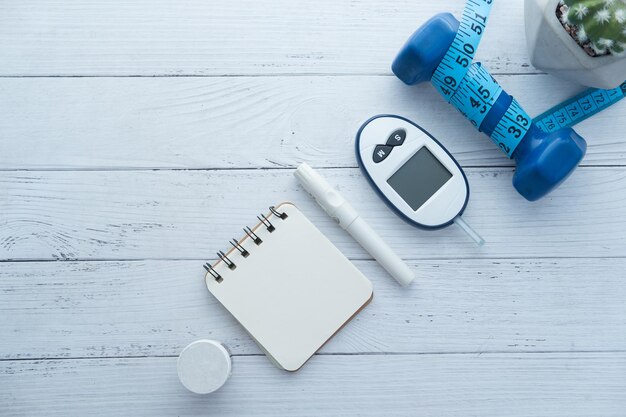Your Guide to How Do I Know If I'm Diabetic
What You Get:
Free Guide
Free, helpful information about Diabetes FAQ and related How Do I Know If I'm Diabetic topics.
Helpful Information
Get clear and easy-to-understand details about How Do I Know If I'm Diabetic topics and resources.
Personalized Offers
Answer a few optional questions to receive offers or information related to Diabetes FAQ. The survey is optional and not required to access your free guide.
Know the Signs: Am I Diabetic?
It starts with subtle cues—a few extra trips to the bathroom, an unquenchable thirst, or maybe a noticeable uptick in fatigue levels. These may seem like minor inconveniences, but they could indicate something more significant, like diabetes. Recognizing the signs early can be crucial in managing the condition effectively. But how do you know if you’re diabetic?
What Are the Common Symptoms of Diabetes?
Understanding the symptoms of diabetes is the first step in identifying whether you need to consult a healthcare provider. Here are some things to watch out for:
- Frequent urination: Your kidneys are working overtime to get rid of excess sugar in your blood.
- Unusual thirst: This goes hand in hand with frequent trips to the bathroom.
- Unexpected weight loss: Even when you’re eating normally, your body can’t absorb glucose without insulin.
- Increased hunger: Without adequate insulin, your body isn’t getting the energy it needs.
- Fatigue: Cells deprived of glucose don’t function at their best.
- Blurred vision: High blood sugar levels can cause your lens to swell.
- Slow-healing sores or frequent infections: Diabetes can weaken your immune system.
Detecting these symptoms early and getting tested can help prevent severe health problems down the line, such as heart disease or kidney failure.
What Tests Can Confirm If You Are Diabetic?
If you suspect you might have diabetes, your doctor will likely recommend one or more of the following tests:
- A1C Test: Measures your average blood sugar levels over the last 2-3 months.
- Fasting Blood Sugar Test: Conducted after fasting overnight; blood sugar levels are measured to diagnose diabetes or prediabetes.
- Oral Glucose Tolerance Test: Measures your blood sugar before and after consuming a sugary drink.
- Random Blood Sugar Test: A random sample of blood is taken to check glucose levels.
Your healthcare provider will review your symptoms, family history, and test results to determine if you have diabetes.
Managing Diabetes: Financial and Educational Resources
Receiving a diabetes diagnosis can feel overwhelming not just healthwise, but also financially. Thankfully, there are various resources available to help:
- Government Health Programs: Medicaid and Medicare often cover diabetic supplies and treatments. Check if you are eligible for coverage.
- Financial Assistance Programs: Organizations like the American Diabetes Association offer support and guidance for accessing financial help.
- Debt Relief Options: If medical bills pile up, look into options that may consolidate your debts, reducing financial stress.
- Educational Grants: Scholarships and grants are available for those needing educational assistance to better manage diabetes.
- Credit Solutions: Consider speaking with a financial advisor about managing your expenses effectively.
Addressing the financial implications of diabetes is important for maintaining your overall well-being.
Helpful Financial Tools for Diabetes Management
- 💰 Medicaid/Medicare: Covers medical expenses and diabetes management costs.
- 📚 Educational Scholarships: Access support for education related to diabetes care.
- 🏦 Debt Relief Programs: Assistance available for managing overwhelming medical debt.
- 💳 Credit Counseling: Seek advice to manage expenses associated with diabetes.
- 🤝 Support organizations: Reach out to the American Diabetes Association for various support options.
Knowing if you're diabetic involves recognizing the signs, getting the right tests, and accessing resources to manage both your health and finances. Early detection and the right support can make a significant difference in your quality of life.
What You Get:
Free Diabetes FAQ Guide
Free, helpful information about How Do I Know If I'm Diabetic and related resources.

Helpful Information
Get clear, easy-to-understand details about How Do I Know If I'm Diabetic topics.

Optional Personalized Offers
Answer a few optional questions to see offers or information related to Diabetes FAQ. Participation is not required to get your free guide.


